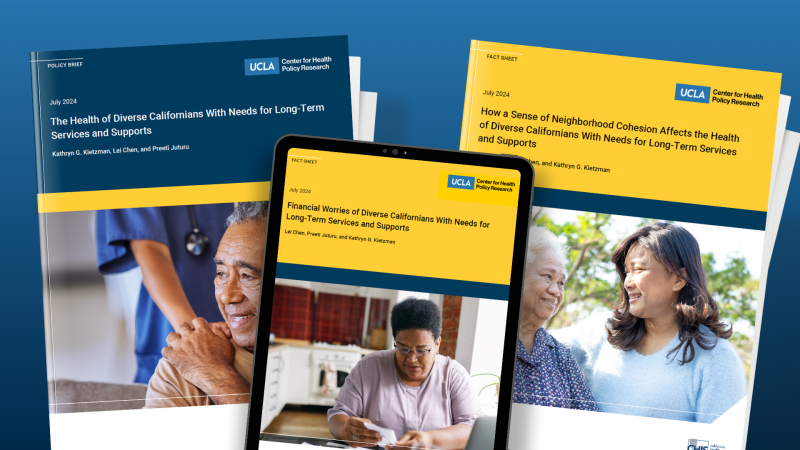The Health of Diverse Californians With Needs for Long-Term Services and Supports

This policy brief presents data on the health and well-being of adults with a disability or with long-time chronic conditions who have needs for Long-Term Services and Supports (LTSS) and compares their health status with that of the general California population. It further examines how health outcomes vary by race and ethnicity, employment status, unmet needs for LTSS, and access to health care. The data are from the 2019–2020 California Long-Term Services and Supports (CA-LTSS) study, a follow-on survey of the 2019–2020 California Health Interview Survey (CHIS).
Findings: Adults with disabilities who have needs for LTSS are three times more likely to report fair or poor health and to experience serious psychological distress than the general adult population in California. The psychological well-being of adults with needs for LTSS varies by race and ethnicity. Employment status is a potential driver of health and well-being among adults with LTSS needs. Access to both LTSS and clinical health care is a potential driver of health and well-being.
The findings can inform the development of policies and programs that improve the identification and assessment of need, access to appropriate care, and the allocation of resources to better address the ongoing care needs of individuals living with disabilities particularly for those who are at greatest risk of experiencing poor health and well-being.








